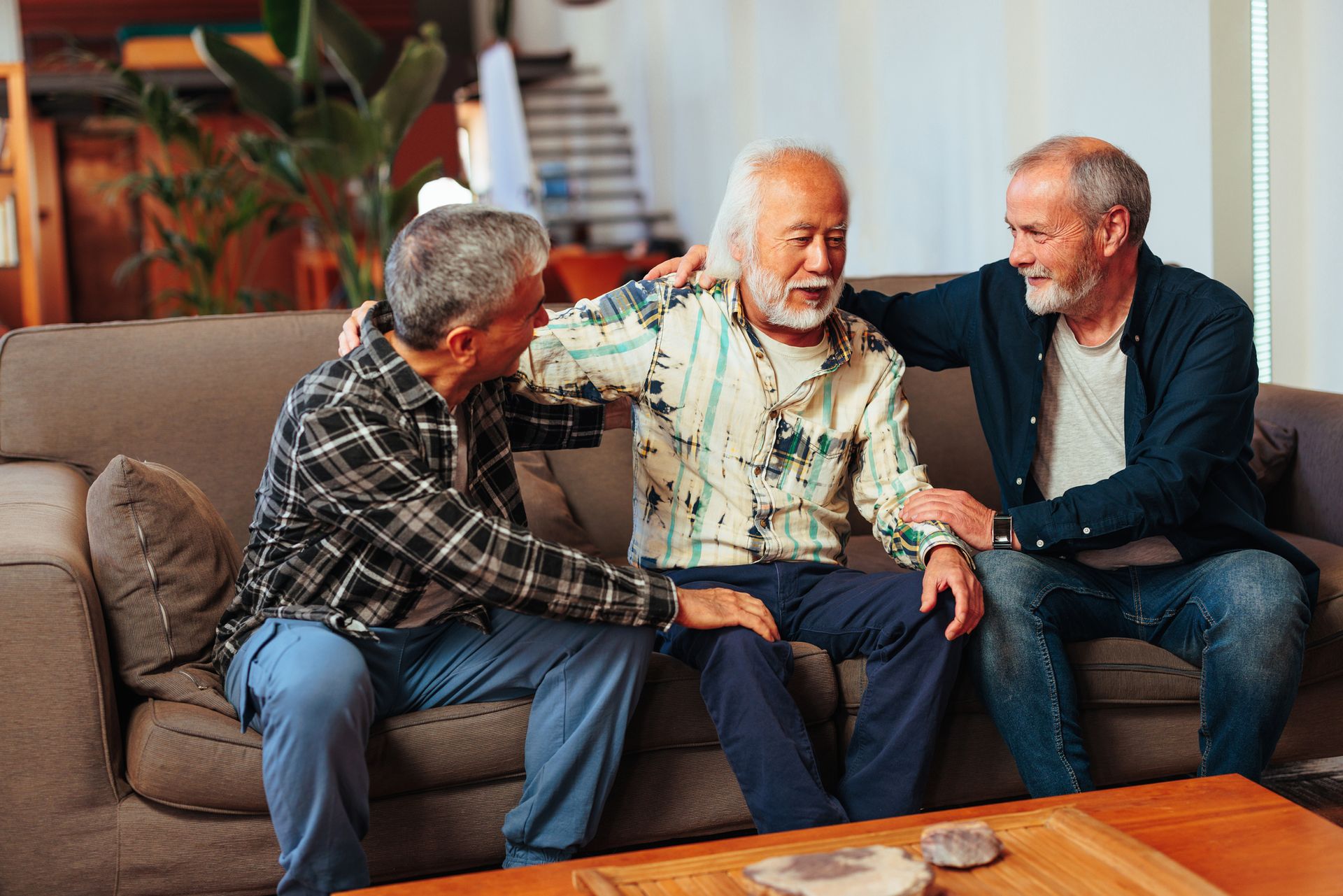
Isolation in seniors poses a serious threat to physical, mental, and emotional health. The result is a 30 percent increase in the risk of premature death through conditions including diabetes, heart attacks, insomnia and dementia.
If your older loved one is becoming isolated from others, it’s vital to determine why, and whether it might be time to consider a different lifestyle; one that offers consistent, safe opportunities for socialization.
The US Surgeon General: loneliness and isolation in seniors is an epidemic
As part of his National Strategy to Advance Social Connection , Dr. Vivek Murthy, US Surgeon General, has issued an advisory stating that while social connection is as essential to humanity as food, water or shelter, in recent years, about one in two adults in America reported experiencing loneliness.
Loneliness can be a “great masquerader,” says Murthy. Some people withdraw, while others become irritable. When feelings of loneliness and isolation in seniors persist, they can be tied to pain, insomnia, depression, anxiety and a shorter life span.
Understanding why a loved one is pulling away
There can be several reasons why your Mom or Dad seems to be avoiding social contact. You can have a conversation with them, and also consider seeing a physician to rule out any physical causes. Some of the factors could be:
- Diminished eyesight or hearing
- Anxiety about getting lost or forgetting directions, where they are going, etc.
- Confusion over how to navigate public transportation
- No longer feel safe driving
- Afraid that a family member or friend will notice their decline in mobility
Being around others has multiple wellness benefits
According to the American Public Health Association , socialization has been shown to be one of the most effective ways for seniors to improve their mental health. Socialization can improve mood, cognition, memory recall and is associated with healthy behaviors, including exercise. In addition, engaging with others can help reduce the risk of chronic diseases.
If the time has come to consider a supportive assisted living or memory care environment, it’s helpful to understand all the benefits that can come with it.
Isolation in seniors: why the right lifestyle choice can be the answer
In an assisted living setting, residents benefit from a maintenance-free lifestyle, filled with opportunities for lifelong learning, wellness programs, convenient services and exceptional amenities. A helping hand is always close by and good friends are just steps away. The atmosphere is like that of a family, where people look out for one another and share life’s ups and downs.
In addition, studies show that people living in senior communities are more resilient, have improved mood and optimism, and are generally more satisfied with life than the older population in general.
The benefits are even more obvious in residential senior living
At Assured, our neighborhood clusters of residential homes create a small, tight-knit community where residents feel at home amongst close friends and neighbors. The goal is always to get residents out of their rooms, so their bedroom becomes primarily the place where they sleep and rest—not where they spend their entire day.
In our memory care assisted living homes, we also offer the option of shared rooms, which can enhance your loved one’s health and wellbeing. For instance, a shared room in an assisted living memory care community increases social engagement. It is family-style living that encourages each resident to make friends and participate in events that feel familiar, such as neighborhood walks, birthday parties, or even the family-style dining that makes conversation easy and reassuring.
Having a roommate not only keeps your loved one involved with life, it might even slow the impact of cognitive change or decline by reigniting a sense of connection. This can pave the way for brighter, happier days. Your loved one knows they are not alone, and you know that he or she is well cared for and given the attention they deserve.
Don’t accept the commonly held view that loneliness goes hand in hand with aging. Isolation in seniors is not something to ignore. Make the right choice—because a sense of community is valuable at any age.
Contact us today, or download our free Family Decision Toolkit guide for more information.


